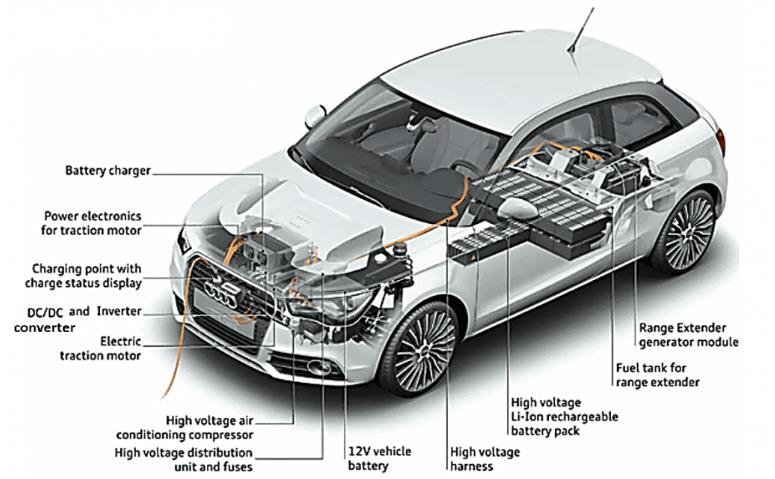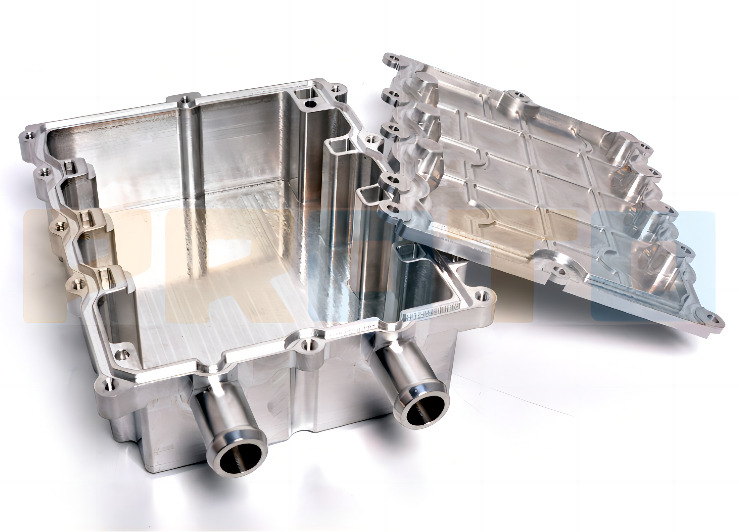CNC milling is a manufacturing process that produces intricate, precise shapes and features in a range of materials. The automotive industry is seeing a rise in the use of CNC milling due to its many advantages, such as cost-effectiveness for short runs and prototyping, precision, accuracy, freedom of design, material versatility, and options for surface finish.

What Are the Advantages of Using CNC Milling for Car Parts?
In the automotive industry, CNC milling has changed the game by revolutionizing the design and production of car parts. With so many benefits over conventional methods, CNC milling is the method of choice when it comes to producing complex, high-performing, and long-lasting parts for your car’s engine and other applications.
Advantage 1: Unmatched Precision and Accuracy
With tolerances as close as 0.0005 inches, CNC milling machines painstakingly carve complex forms and features out of metal with robotic precision. For essential auto parts like engine blocks, cylinder heads, and pistons, this degree of precision guarantees ideal fitment and performance.
Advantage 2: Design Freedom and Complexity
The constraints of conventional machining are no more! Designers are now free to produce previously impractical intricate geometries, undercuts, and internal features thanks to CNC milling. This creates opportunities for lightweight designs, improved functionality, and novel engine parts.
Advantage 3: Reduced Waste and Increased Efficiency
CNC milling reduces material waste by using accurate cuts and effective toolpaths. This results in lower costs and quicker production times in addition to positive effects on the environment. Furthermore, by automating CNC machining, less manual labor is required, which improves safety and consistency in quality.
Advantage 4: Surface Finish Versatility
CNC milling meets a wide range of functional and aesthetic requirements. CNC milling can achieve a wide range of finishes to suit the unique requirements of each car part, from a rough as-milled finish for optimal grip to a mirror-polished surface for reduced friction and enhanced performance.
Advantage 5: Cost-Effective for Prototyping and Short Runs
CNC milling has an initial setup that may seem high, but it excels in efficiency for prototypes and small batches. It is more affordable than traditional methods because of the decreased waste, accuracy, and speed—especially for limited-edition and custom car parts.
All things considered, CNC milling gives the production of auto parts a new degree of accuracy, effectiveness, and design freedom. Innovative and high-performing vehicles are being made possible by CNC milling, which is reviving the automotive industry. It can be used to create lightweight performance parts or intricate engine parts.
What Materials Are Suitable for CNC Milling Car Parts?
Selecting the appropriate material for CNC milling automotive parts is essential for their effectiveness, longevity, and general success. Here’s a breakdown of some popular options and their strengths:

What Are the Factors to Consider When Choosing CNC Milling for Car Parts?
Part Complexity and Design: It impacts the viability of your design for CNC milling, affects production efficiency and cost, and ultimately decides whether or not your car part creation is successful. You can use CNC milling to create high-performance, creative car parts that are tailored to your requirements by carefully weighing these factors and working with an experienced machinist.
Material Selection: The choice of material has a significant impact on the effectiveness and outcome of CNC milling for automotive parts. It affects the part’s functionality, design options, manufacturing schedule, and, in the end, the viability and cost of the project. Through careful consideration of these variables and advice from an experienced machinist, you can select the material that will enable your car parts to be CNC-milled to their maximum potential.
Surface Finish Requirements: It’s important for maximizing performance, guaranteeing longevity, and even improving the way your car looks. You can maximize the advantages of CNC milling for your car by carefully weighing the part’s intended function, environmental considerations, and aesthetics.
Conclusion
For car parts, CNC milling is the ideal choice due to its many benefits over conventional manufacturing techniques. Automotive manufacturers can meet the needs of modern drivers by using CNC milling to create high-performance, lightweight, and durable car parts. Aluminum, stainless steel, bronze, and other alloy machining parts are among the many kinds of alloy machining parts that Proto MFG can offer its clients. It’s time for a CNC machining solution when parts need to be processed into intricate shapes or cannot be processed in conventional ways.